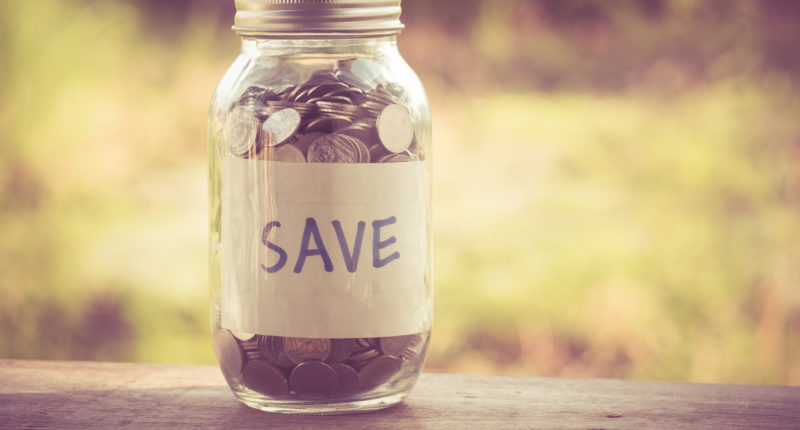The overdraft facility can be considered as a kind of a loan. It is offered by most financial institutions that are granted banking rights by the central bank. The overdraft facility allows you to continue withdrawing from your savings or current account even after the balance has touched zero.
An account overdraft happens when you withdraw more money than the available balance. For example, if you withdraw Rs 25,000 from your account which had a surplus of Rs 10,000, then your account is said to be overdrawn to the tune of Rs 15,000. To avail this facility, you will have to hold an overdraft account with your banker.
The COVID-19 pandemic has affected the finances of most individuals in some or the other way. The Reserve Bank of India (RBI) has announced a moratorium on the term loans up to September 2020 as a part of the government’s relief measure. Instead of availing a personal loan if you require funds, then you may consider availing the overdraft facility as it is also made eligible for the said moratorium.
As mentioned earlier, availing the overdraft facility is a kind of loan, and hence you have to repay the overdrawn amount within a particular duration. Overdraft account holders are to pay interest on overdrawing from their account. The interest rate on overdraft accounts is fixed and not floating.
How to avail the overdraft facility?
Since overdraft accounts lend money to the account holders, overdrawing is similar to availing a loan from the financial institutions. Some account holders enjoy the pre-approved overdraft by their bankers while the rest have to apply for the same and avail the facility when the banker approves their request.
If you hold a pre-approved overdraft account and you unknowingly withdraw more than the available balance, then your account is automatically activated with the overdraft facility. The onus is on you to keep track of it and repay the overdrawn amount. If not, then the interest starts accumulating and proves to be a significant sum if left unnoticed for an extended period.
An overdraft facility can be availed by joint borrowers as well, and all the co-borrowers would be held equally responsible for repaying the overdrawn amount. The limit on overdrawing would differ across borrowers and banks.
Types of overdraft accounts
Like loans, even overdraft accounts are broadly classified into secured and unsecured. The unsecured overdraft accounts require no collateral or security pledged with the bank. On the other hand, the secured overdraft accounts need account holders to furnish collateral. Following are the types of collateralised or secure overdraft accounts:
Overdraft against a housing property: You can pledge your house to open a secured overdraft account. Overdraft against a housing property can also be offered to those customers who currently have a home loan running and require funds to close their home loan. However, for this, the banker would conduct a thorough examination of the house and will run a check on the encumbrance and ownership details. The overdraft facility against a house is offered if the assessment and valuation of the property meet the required criteria. You can be sanctioned to overdraw up to 50% of the property’s value.
Overdraft against fixed deposits: Securing the overdraft facility against a fixed deposit is also much quicker than that against a housing property. This involves very minimal documentation and thereby making the process way faster. If you have invested in a fixed deposit with a particular bank and would like to avail the overdraft facility against it with the same bank, then the sanctioning process is even faster. You can be sanctioned to overdraw up to 75% of the amount invested in the fixed deposit which is being furnished as the collateral.
Also Read: Four loans you can opt for to battle financial stress during COVID-19
Overdraft against an income: You don’t have to worry if you don’t have a housing property or insurance policies and fixed deposits to furnish as the collateral to avail the overdraft facility. You can avail overdraft against your salary. You may be sanctioned to overdraw up to three times your monthly salary; it varies across banks. However, some banks offer overdraft accounts only to those who have their salary account with that particular bank. Therefore, it is advisable to check with your banker before you reach out to any other bankers.
Overdraft against insurance policies: If you hold insurance policies, then you can open overdraft accounts against them. The amount sanctioned to overdraw depends on the surrender value of the plan. Availing overdraft against insurance policies is much faster and involves very minimal paperwork as compared to that against a housing property.
Loan against equity-linked securities: If you have invested in equities, then you can furnish those securities as collateral to avail overdraft facility. However, the amount that can be overdrawn from these accounts would be low as equity-linked securities are exposed to market risk.
Here’s how overdraft racks up against personal loans
When you need cash, one of the first options that you think of is availing a personal loan. However, it may change after reading this article. Overdraft is criminally underrated for the kind of facilities it offers. Here’s why overdraft is a far better option than personal loan:
i) Faster processing: The processing of a personal loan takes a longer time as it involves a tedious procedure if you don’t have a pre-approved loan. Also, it would be best if you had a decent credit score to secure a personal loan for the amount you apply for. If your credit score is terrible, then the chances of your application getting approved are minimal to nil. On the other hand, availing the overdraft facility is much faster and hassle-free as compared to a personal loan, and hence the former comes in handy at times of a crisis.
ii) Flexibility: Personal loans need you to be exceptionally punctual when it comes to repayment. Throughout the repayment tenure, you will have to pay a fixed sum every month through equated monthly instalments (EMIs). On failing to do so, your credit score will be adversely impacted. On the other hand, overdraft accounts allow you to be flexible in repayments. You can stretch your repayment over the duration which comforts you.
The levying of interest starts from the day the amount is disbursed into your account in the case of personal loans. Even if you don’t make use of the funds, you will be charged with interest and have to pay monthly instalments. This is not the case with the overdraft facility as you have to repay only the amount that you have overdrawn and interest will be charged only on that amount. Thus overdraft is way more flexible than personal loans.
iii) The credit score is not hampered on overdrawing multiple times: If you have availed a personal loan and have closed it, your credit score gets impacted. If you are to avail another personal loan, you will have to go through the documentation procedure again, and the lender will make a hard inquiry every time you apply for a personal loan, which would decrease your credit score. On the other hand, the overdraft facility allows you to overdraw multiple times from the same account up to the amount sanctioned for overdrawing. Therefore, despite overdrawing several times, your credit score would not take a hit.
iv) No foreclosure charges: If you foreclose a personal loan, then the lender would levy foreclosure charges. It is generally a percentage of the outstanding amount. It varies across banks. In the case of overdraft accounts, there are no pre-closure charges. You can fully repay the overdrawn amount without paying any penalties. Also, you need not repay via the EMI route. You can repay how much ever you want at any time.
If you are short on cash, then you must consider availing the overdraft facility as it offers much-needed flexibility as compared to a personal loan. Also, your credit score is not impacted much by the overdraft limit.
For any clarifications/feedback on the topic, please contact the writer at vineeth.nc@cleartax.in
Engineer by qualification, financial writer by choice. I am always open to learning new things.





